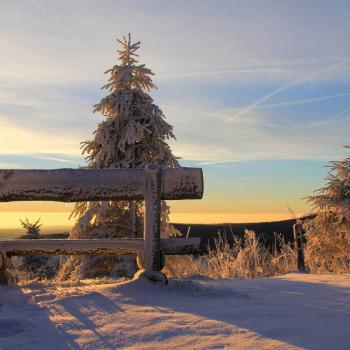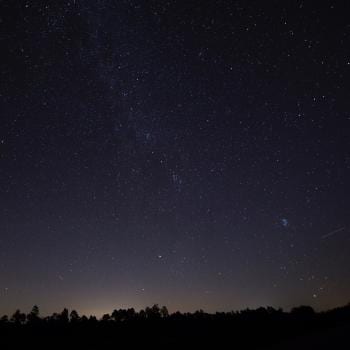The Adventurous Lectionary – The Sixth Sunday after Epiphany – February 16, 2025
Jeremiah 17:5-10; Psalm 1; I Corinthians 15:12-20; Luke 6:17-26
Today’s readings are about relationships, finite and infinite. There is a Gentle Providence, quietly arcing through our lives, reminding us that we are all in this together. We are the beneficiaries of gifts we did not earn and in response our lives are our gifts to the future. We are finite, connected to the Infinite, and in this connection, we find peace even in challenging times. There is also a word of threat to those who would claim to be God and live by the love of power rather than the power of love.
God is God and You Aren’t
The words of Jeremiah seem apt in the era of power-hungry politicians and oligarchs and their followers who would usurp the place of God and uplift the devices and desires of their hearts. Idolatry of political leaders is nothing new. Jeremiah is well aware that mere mortals can exalt their status as if they can by their power nullify their mortality. This idolatry is especially tempting in authoritarian religions in search of authority figures. Sadly, there are those among our Christian kin appear to elevate Trump to near divinity status as defender of the faith, chosen by God, delivered from a bullet to make America Great! Powerful religious leaders, need to remember “cursed are those who trust in mortals.” God is God and Trump isn’t! God is God and America isn’t. God is not mocked by our faux divinities. In trusting finite and fallible mortals for our happiness and wholeness, we disconnect ourselves from the true sources of nurture. We create a chasm – dare we say, a wall – between ourselves and God that eventually will lead to spiritual dehydration. In our quest for power, we risk losing our souls. Those who trust in God will connect with an ever-flowing stream. They will bloom despite the aridity of the environment.
Some listeners, including the pastor, will struggle with Jeremiah’s description of the heart as devious and perverse. Isn’t the heart also compassionate and sacrificial? Doesn’t the heart inspire generosity and empathy? Surely it does. Once again, the prophet is reminding us of mortality and finitude, of the need to be aware of our own ambiguity, the potential to baptize our self-interest as morality. We can’t help being self-interested but we need to place our self-interest in the context of willingness to sacrifice for a greater good; what Alfred North Whitehead calls world loyalty. A hermeneutic of suspicion is appropriate in our evaluation of every institutional authority, especially the most powerful, in government and economics.
Follow God’s Law not Yours
Psalm 1 speaks of the joy that comes from alignment with God’s law. Although the law can be connected with the Mosaic ordinances, it may also be the law of our nature, the laws of the environment, the deepest presence of God moving through all things. Alignment with God’s vision – righteousness – brings joy and fulfillment, despite the circumstances of life. We do not follow God’s law to be rewarded, however, but to enjoy the fruits of an interdependent – receiving and giving – relationship with God.
Practice Resurrection
Paul’s argument from I Corinthians may be a bit off-putting for today’s listeners, who have little familiarity with his logic or the nature of resurrection. The passage connects our hope for resurrection with the reality of Christ’s resurrection. If we do not rise, then there is little likelihood that Christ rose. We are the proof of resurrection. What does that mean? How can weak mortals be icons of divine resurrection? At the very least, it means that survival after death is relational and connected to the realities of this life. Resurrection is this-worldly as well as beyond this life and proven in our ability to be renewed in times of struggle, stress, and defeat. Given the continuity of Christ’s resurrection and ours, we might say that resurrection is naturalistic, that is, it emerges from our mortal and finite strivings, infusing them with everlasting life.
But how do we practice resurrection when leaders seek to destroy and deceive? In truth, this was the question in the first century and is ours today. Let us be people of resurrection, living by a higher standard than the potentates and authoritarian figures in economics, government, and religion. Let God be God, and let us claim our agency in alignment with God’s vision, with humility and not hubris. The enemies of resurrection in business, church, and government will fail. The Grand Inquisitor appears powerful but their power is built on shifting sands. Resurrection has the final word and it calls us to live by the better angels of our nature and seek to promote life for all creation, even those we perceive to be our enemies.
Blessings in a Cursed Time
Jesus’ words from the Sermon on the Plain connect wholeness, finitude, struggle, and mortality with being blessed. The blessed know their need, they immerse themselves in creative and nurturing interdependence because they have no other choice. They know God is God and they aren’t! They can’t use their privilege to fly over the valley; they must walk through the darkest valley – the valley of the shadow – with God and others as companions and support. In the biblical tradition, the person most pitied is the rugged individualist, needing nothing and no one – not even God – to thrive. Such independence is an illusion – the illusion felt by billionaires, presidents, celebrities, star athletes, and successes – until life confronts them and they discover trusting any mortal, including themselves, will lead to personal and communal ruin. Creative interdependence nurtures, rather than blunts, personal agency.
Today’s scriptures challenge us to embrace interdependence. The virtues of interdependence are humility, gratitude, compassion, empathy, generosity, and love. Connected with one another, the energy of the vine flows through us, we are nourished as we nourish each other, and there is always room for one more at the table.
++++
Bruce Epperly is Theologian in Residence at Westmoreland Congregational United Church of Christ, Bethesda, MD (https://www.westmorelanducc.org/) and a professor in theology and spirituality at Wesley Theological Seminary. He is the author of over 80 books including: “Homegrown Mystics: Restoring the Soul of Our Nation through the Healing Wisdom of America’s Mystics” (Amazon.com: Homegrown Mystics: Restoring Our Nation with the Healing Wisdom of America’s Visionaries: 9781625249142: Epperly, Bruce: Books) “Jesus: Mystic, Healer, and Prophet “(Jesus: Mystic, Healer, and Prophet: Epperly, Bruce: 9781625248732: Amazon.com: Books), Saving Progressive Christianity to Save the Planet”( Saving Progressive Christianity to Save the Planet: Epperly, Bruce G: 9781631999215: Amazon.com: Books), and his most recent book, “God of the Growing Edge: Whitehead and Thurman on Theology, Spirituality and Social Change.”













